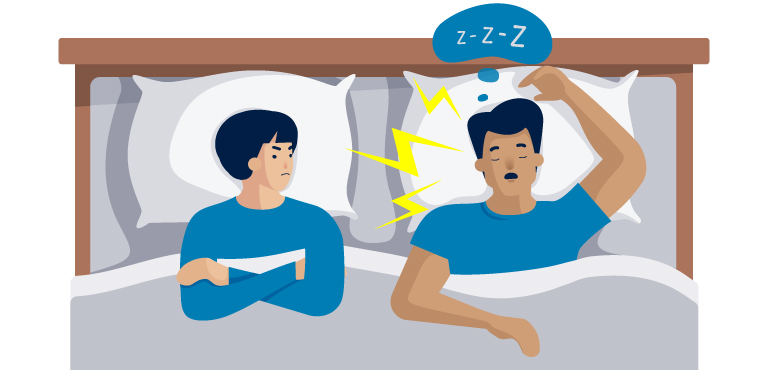
Snoring is common, but it can be an ongoing problem. If it happens often during the night, it can be a sign of a serious health issue.
When your sleep is interrupted often during the night, you can be drowsy during the day. People with sleep apnea are at higher risk for car crashes, accidents at work, and other medical problems.
Sleep apnea is a common problem that causes your breathing to stop for short periods of time or get very shallow.
For children, it can also affect learning and behavior. If you have it, it is important to get treatment.
When to get help
If you are worried that you or your child may have a problem with snoring or breathing during the night, call your Primary Care Provider (PCP). Your PCP is the doctor, nurse, or physician’s assistant who is in charge of your health care.
Here are some signs to look out for:
- Breathing stops temporarily while sleeping
- Sleepiness during the day
- Having a hard time focusing
- Morning headaches
- Sore throat when waking up
- Restless sleep
- Gasping or choking at night
- High blood pressure
- Chest pain at night
- Your snoring is so loud it disturbs your partner’s sleep
- In children: Poor attention span, or issues with behavior